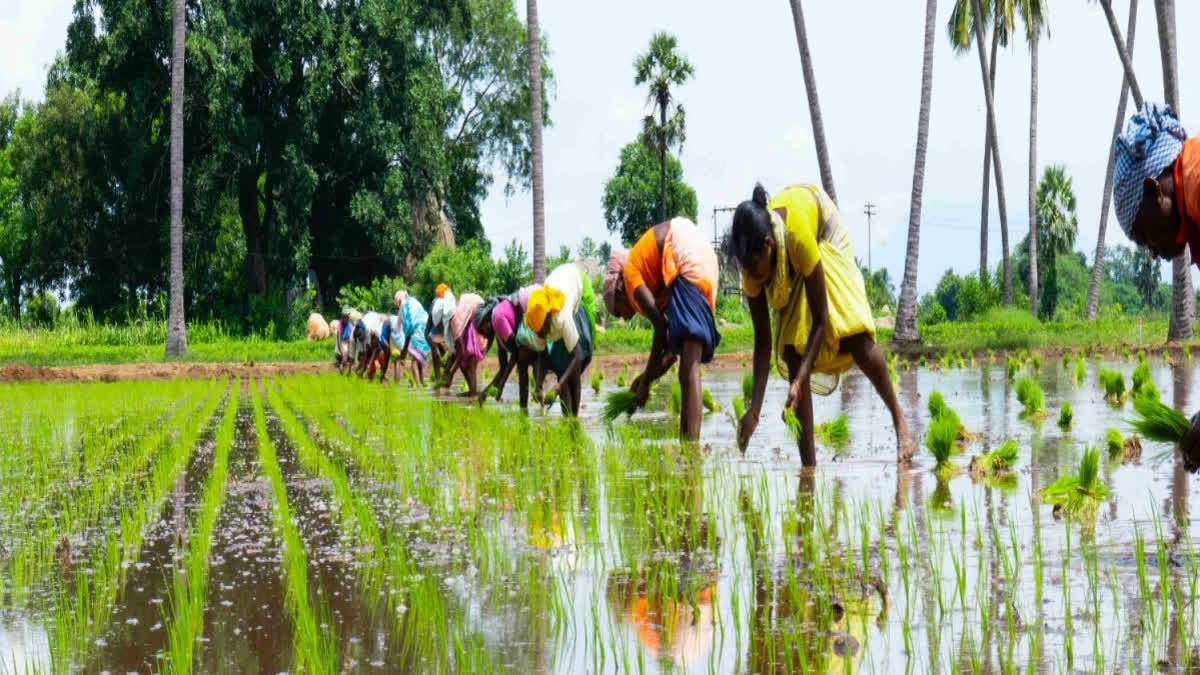Kathmandu: India needs to think about alternative ways of doing agriculture so that the country doesn't run out of groundwater resources and destroy the soil, said Dr Shahidur Rashid, Director-South Asia the International Food Policy Research Institute (IFPRI). In an exclusive interview with PTI on the sidelines of the recent launch of the Global Food Policy Report (GFPR) in Kathmandu, Nepal, Rashid stressed on the importance of developing heat-tolerant crop varieties and adopting sustainable irrigation techniques.
Flood irrigation, prevalent in rice cultivation, leads to water wastage and decreases water use efficiency. Implementing innovative irrigation methods and embracing solar power for irrigation can reduce carbon footprints and alleviate water scarcity issues, he said. Rashid emphasised that while India currently has sufficient food production to feed its population, challenges lie in ensuring accessibility, nutritional value, and long-term stability.
The biggest challenge, he said, for India is that the system that was developed since the Green Revolution a period of technology transfer initiatives that saw greatly increased crop yields and agricultural production which extensively exploits groundwater, and uses heavy chemical fertilisers cannot be sustainable in the long run.
We really need to think about alternative ways of doing agriculture so that we don't run out of groundwater resources and we don't destroy our soil. I think that is going to be the main challenge for India and South Asia for the future, Rashid explained. He highlighted the importance of integrating nutrition components into social safety net programmes to combat nutritional deficiencies effectively.
The GFPR South Asia report noted that the prevalence of undernourishment was 16 per cent in India between 2019 and 2021. Merely consuming staple crops like rice and wheat is insufficient for a healthy life, as the country grapples with micronutrient deficiencies, also known as hidden hunger, he said, stressing the importance of addressing these issues to cultivate a healthy generation for the future.
Regarding production, Rashid acknowledged that India produces enough food in terms of quantity, however, the methods employed, such as excessive fertiliser subsidies and groundwater exploitation, are not sustainable in the long run. To mitigate these challenges, he highlighted the significance of alternative agricultural approaches that conserve groundwater resources and preserve soil health.
Initiatives like the soil health card provide valuable insights into soil nutrient deficiencies, aiding in the production of nutritionally rich crops, Rashid added. Soil Health Card is a government scheme used to assess the current status of soil health and, when used over time, to determine changes in soil health that are affected by land management.
When discussing food availability, accessibility, and affordability, Rashid pointed out the multi-faceted nature of the problem, saying income disparities hinder large sections of the Indian population from affording a healthy diet. Additionally, cultural preferences and habits play a role in determining the effectiveness of nutrition interventions. Developing crop varieties fortified with essential micronutrients, such as zinc and boron, can help address cultural barriers, especially in rice-consuming regions, he said.
